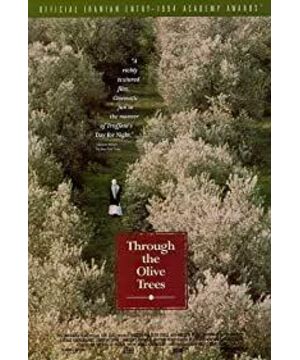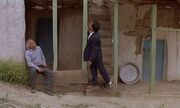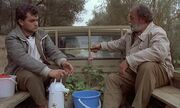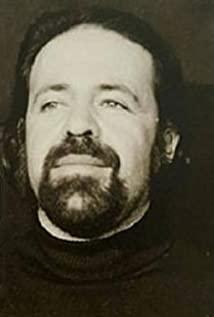The third part of Abbas's Country Trilogy, I liked the beginning very much. The director said that he started the movie from the beginning of looking for an actor, and the meta-movie mode. The fusion of documentary and feature film, running through the first two films, followed by the familiar long shot of the road, and the voiceover chat. Girls' rebelliousness and instability, beauty and stubbornness in adolescence. The director who uses restrained and peaceful lens language to directly hit people's hearts without revealing the mountains and rivers, shows the reality and explores the issues of life, is the real philosopher and artist. The person behind the camera goes to the camera, life cannot be directed, everything is part of life.
Still exploring the true meaning of life, different people have different lives. I really like the cries of children in Abbas' films, and they talk about the environmental damage caused by industry, ecological protection, emotional problems between men and women, and people's inseparable sense of belonging to home. A lot of people were buried under rubble, and I sprinkled some water on me, that's ok. Through the ingenious design of filming, Abbas shows the difficulty of filming and its own documentary and fictional nature. The interspersed in and out of the play are all reality. The fixed panoramic long shot has the taste of Hou Hsiao-hsien's movies. Abbas follows Bazin and Kracauer's photographic ontology, the theory of restoration of material reality.
I like it, the director said that he started the movie from looking for actors, and the meta-movie mode. The fusion of documentary and feature film, running through the first two films, followed by the familiar long shot of the road, and the voiceover chat. Girls' rebelliousness and instability, beauty and stubbornness in adolescence. The director who uses restrained and peaceful lens language to directly hit people's hearts without revealing the mountains and rivers, shows the reality and explores the issues of life, is the real philosopher and artist. The person behind the camera goes to the camera, life cannot be directed, everything is part of life. Still exploring the true meaning of life, different people have different lives. I really like the cries of children in Abbas' films, and they talk about the environmental damage caused by industry, ecological protection, emotional problems between men and women, and people's inseparable sense of belonging to home. A lot of people were buried under rubble, and I sprinkled some water on me, that's ok. Through the ingenious design of filming, Abbas shows the difficulty of filming and its own documentary and fictional nature. The interspersed in and out of the play are all reality. The fixed panoramic long shot has the taste of Hou Hsiao-hsien's movies. Abbas follows Bazin and Kracauer's photographic ontology, the theory of restoration of material reality. Both Abbas and Bergman told me that life has never been so happy, but life will not despair. We have tenacious vitality, and life continues. Even if God is doubted, we still have our own beliefs in our hearts. Skillful use of different forms to discuss firm life issues is a good director. The director likes to use a voice-over to show the event, and the state of the onlookers reflects the audience's mood. When can we watch the world calmly and calmly? "Come on, let's live hand in hand." This is the most romantic proposal. The ruthless reality of natural disasters cannot stop the power of life and the power of love. I didn't understand the title until the end of the film, the style of the picture is very poetic, and the belief that human beings can live forever comes from love. It still ends with a big vision, the world is big, we are small but unique, and it is a hymn of the love of life!
View more about Through the Olive Trees reviews








